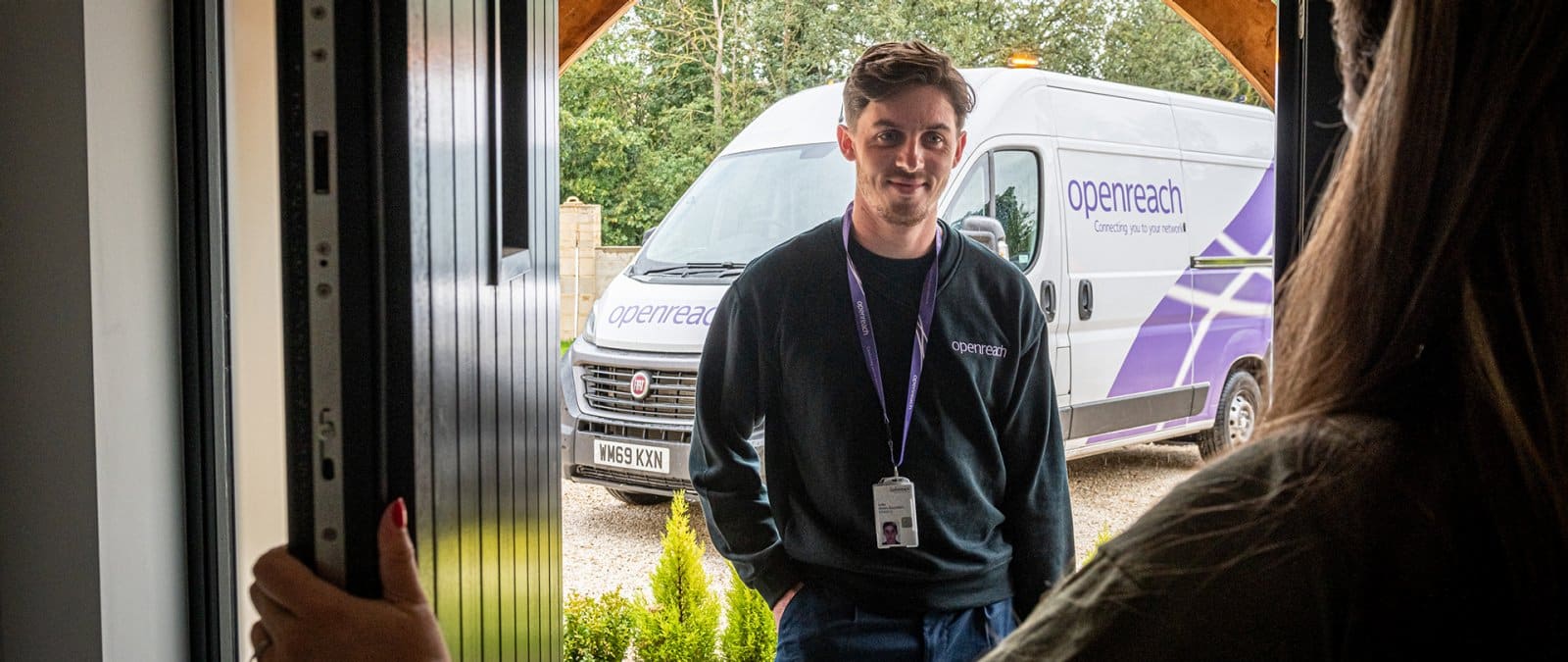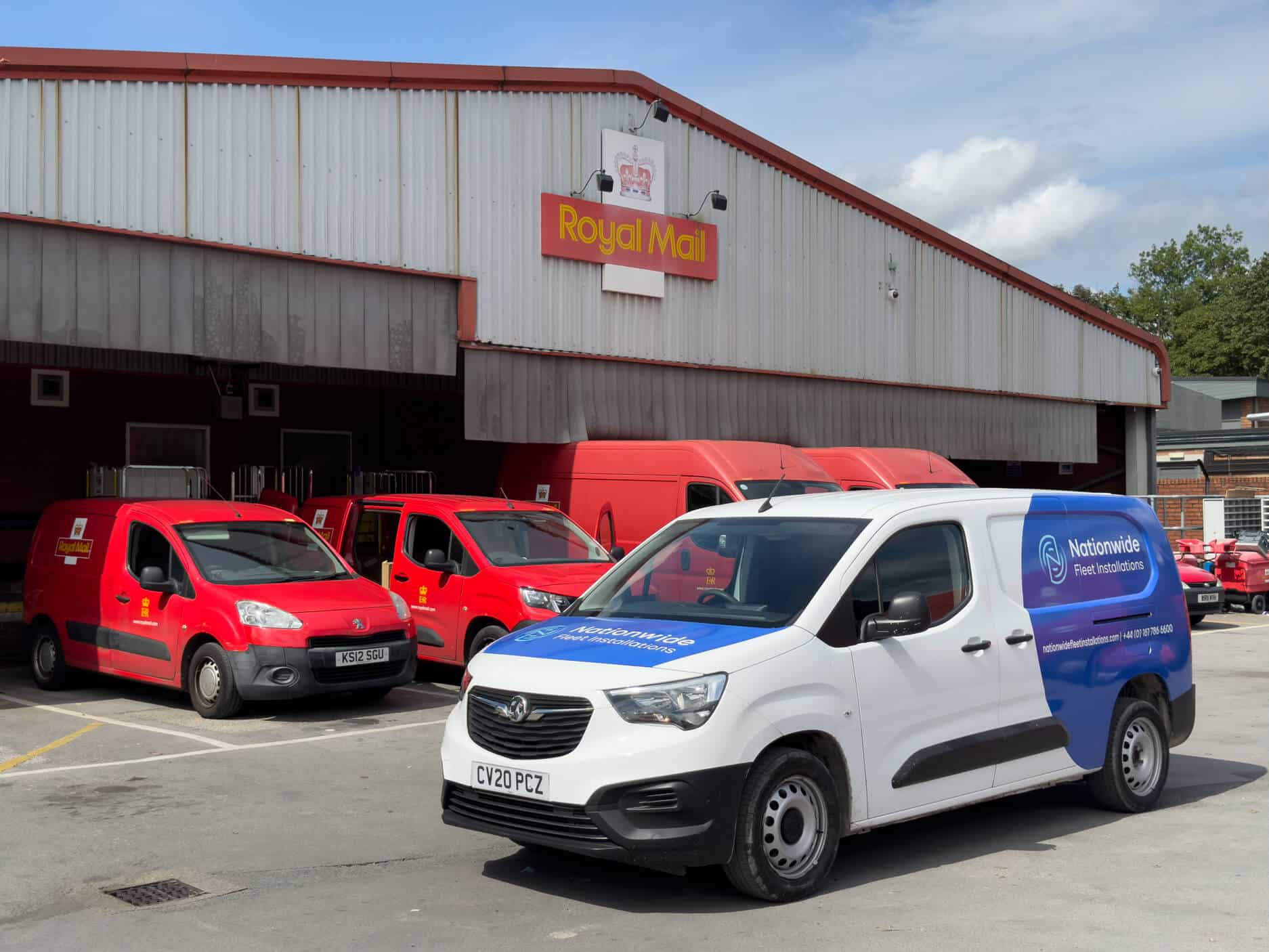Case Study
Trimble Inc. /
BT Openreach
The Brief
We were engaged by Trimble to develop an effective installation plan for around 24,000 telematics devices for their client, BT Openreach – a national organisation running the UK's digital network. These devices were to be rolled out across the BT Openreach fleet in a timely and efficient manner.
Initial steps
As with every large installation project, we assigned a dedicated Project Manager along with a multi-person administration team to provide essential support. Given the size of the rollout, we required significant cooperation and organisation from the customer in order to deliver the project within a reasonable timescale.
Since we were solely responsible for project delivery, we began early discussions with the other stakeholders to develop a practical and deliverable solution. This involved using twenty of the client’s fixed locations around the UK as regional bases at which our engineers could perform their installations.
We agreed upon a 60-minute window for each installation. This would cover the entire process from start to finish, including quality testing and the recording of all details for our stock management team.
Implementation
BT Openreach agreed to provide vehicles in accordance with our agreed schedule, arranging for each vehicle to arrive thirty minutes prior to their designated time slot. To ensure their engineers arrived at their respective depots for installation, the client allocated a job in their schedule, requiring them to arrive on time.
This meant that our installers were being fed a constant supply of vehicles for installation. If one of the customer’s engineers was unable to bring their vehicle in on time, a substitute engineer could be found by interrogating the scheduling system, minimising downtime for our technicians. This was generally a fast and efficient process, thanks to the size of the fleet and the fact that our installation teams were active across 20 strategically placed locations throughout the country.
A rapid escalation process was put in place between the depot managers and the engineers’ managers. This meant that any engineers who were repeatedly missing their scheduled slot could be contacted directly by their manager to resolve any issues with attendance.
Our experienced installation teams frequently surpassed the agreed-upon 60-minute installation window, which meant that the next vehicle could be worked on ahead of schedule with the cooperation of the site manager. This kept the downtime for each vehicle to a minimum and ensured that delays caused by the occasional late arrival could be accommodated without affecting the project targets.
Stock handling support
With so many devices to install, we also took responsibility for stock management. This included receiving the components from various international suppliers at our Manchester facility, inserting a SIM into each device, and testing and configuring all units at our multi-station testing benches. The finished units were then packed up as installation kits and dispatched to one of the 20 local depots for installation.
For a job of this size, the accurate recording of SIM and unit details is absolutely essential to preventing lost or missing stock. We carried out the process electronically, resulting in no information issues.
Administration support
We have a dedicated admin team ready to support both our stores team and our engineers in the field. They work closely with our stores team, ensuring the accurate recording of equipment receipts and dispatches, as well as making sure that all locations are supervised and all deliveries are carefully monitored.
Our administrative staff also records installation details, including what units have been fitted and what vehicles they have been installed into. They compile daily reports for all stakeholders, confirming that the project is progressing as planned. Thanks to the systems and processes we have in place for recording and cross-referencing installation data, we are able to keep a 100% accurate log of all telematics devices.
Project delivery time
The entire project—all 24,000 installations—was delivered in full within four months. All installation work had to be carried out during regular working hours due to restraints with the BT Openreach engineers.
On average, we deployed 40 engineers per day (two to each site), averaging 15 vehicles per site per day. Smaller sites would be sent a single installer, while larger sites would be sent more than two, in order to make the most of our resources.
On any long-term project, the possibility of installers being unavailable on a given day is inevitable, but this was already factored into our delivery plan. Should one of our installers call in sick or require an unscheduled day off for any reason, we could arrange a replacement relatively quickly to reduce the impact this would have on our performance.
Additional information
This project was conducted alongside another significant installation job involving telematics installations across a fleet of 4,000 passenger transport vehicles. Despite the considerable numbers involved in each project, both were delivered successfully and within the agreed timescales. While we were working with both clients on these major commissions, we continued to provide our existing customers with their day-to-day service needs.
Get in touch
For fleet telematics installation solutions and other vehicle technology services you can depend on, contact Nationwide Fleet Installations today.
Call us on 0161 786 6600 or email the team at info@nationwidefleetinstallations.com, and one of our team members will get back to you.



